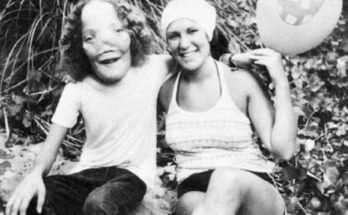Quick Facts
| Net Worth | Not Known |
| Salary | Not Known |
| Height | Not Known |
| Date of Birth | Not Known |
| Profession | Celebrities |
There is almost no life story as inspiring as the life lived by Har Gobind Khorana. He was born and raised in a poor neighborhood by a struggling family. His breakthrough in life was made possible because he made use of the very thing he had, his intelligence. Gobind was a bookworm back in school and it helped earn him scholarships which in turn helped see him through his tertiary education In the process, he obtained his bachelor’s degree, master’s degree, and Ph.D. Today, even after his death, Khorana is celebrated as a renowned biochemist. Here are facts to know about him.
Who Exactly is Har Gobind Khorana?
Har Gobind Khorana was an Indian born American biochemist who specialized in molecular biology. He is much celebrated today as the scientist who uncovered so many information about human genetics, and most of his works were concentrated on the human cells. Khorana is also known to be the first to have demonstrated the role of nucleotides in protein synthesis, a process which has now become widespread knowledge.
His Childhood and Education
Khorana was born on January 9, 1922, in Raipur, Punjab province, a small village of not more than a hundred residents in British India. He was born as the youngest of five kids of GanpatRai Khorana and Krishna Devi Khorana. Har Gobind Khorana’s father was a village accountant. Although his family was poor, his father never failed to ensure that all five of his children were educated. Khorana’s family were the only literates in his village, which was occupied by about a hundred people.
Har Gobind Khorana started his education in his village, where he took classes under the trees. He later moved to the classroom when he got into high school. He studied at D.A.V. High School in Multan, West Punjab. Gobind’s intelligence was recognized back in his high school days, which made the Indian government award him a scholarship to study in the university. He graduated from Punjab University, earning his first degree in 1943. Har then went on to obtain a master’s degree from Punjab University still being financed through a scholarship. After he got his master’s degree, the Indian government further sponsored him to get a Ph.D. from the University of Liverpool. Khorana in 1948, obtained his Ph.D. certificate in organic chemistry.
Career
In 1952, Har Gobind Khorana accepted to work with the research council of the University of British Columbia. Even though the facilities provided from the university was not enough, Khorana was pleased with the fact that he got his own lab to work and had the freedom to do the kind of research he always wanted to do. During his time with the British Columbia, the Indian-American scientist worked on nucleic acids and synthesis of biomolecules.
Eight years after, Khorana started researching on enzymes after he accepted to be co-director of the University of Wisconsin’s Institute for Enzyme research. It was at the University of Wisconsin that he finished the work that eventually earned him his shared Nobel prize.
Khorana was in 1970 named Alfred P. Sloan professor of biology and chemistry at Massachusetts Institute of Technology (MIT). He retained the position until he retired in 2007. In 1972, Har Gobind Khorana constructed the very first artificial gene ever and after some years, he was able to make the artificial gene to function in a bacteria cell. His research and discoveries have made genetic engineering possible due to the synthesizing of deoxyribonucleic acid (DNA).
Family
Khorana was married to a Swiss woman named Esther Elizabeth Sabler. The couple met for the first time in Switzerland before they settled as husband and wife in 1952. Together, they had three kids, Julia Elizabeth, born on May 4, 1953; Emily Anne, born on October 18, 1954; and Dave Roy, born on July 26, 1958. The couple, however, lost their second child, Emily Anne in 1979 after which Esther died also. After Khorana lost his wife, he never remarried.
Life Achievements and More
- in 1968, Khorana received a Nobel prize in Physiology and Medicine which he shared jointly with Robert W. Holley and Marshall W. Nirenberg.
- He constructed the first synthetic gene in 1972.
- Har Gobind Khorana received a Willard Gibbs Award in 1974.
- He proved that the cells receive the nucleotide code in groups of three, which is called codons.
- In 1980, Har Gobind Khorana was awarded a Gairdner Foundation International Award.
- He also received a Louisa Gross Horwitz Prize from Columbia University.
Cause of Death
After 89 years of living a fulfilled life, the professor emeritus died of natural causes in his home in Concord, Massachusetts, on November 9, 2011. The late professor is survived by his children namely Dave Roy and Julia Elizabeth.
Top 3 Richest Celebrities
Also Read: Top 10 Richest People in the world with full biography and details.




